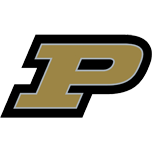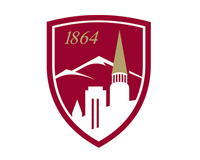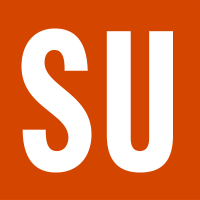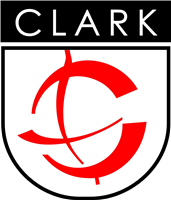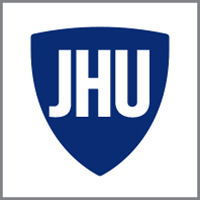What do they do?
Speak or read from scripted materials, such as news reports or commercial messages, on radio, television, or other communications media. May play and queue music, announce artist or title of performance, identify station, or interview guests.
Also known as:
Anchor, Announcer, Broadcaster, DJ (Disc Jockey), Host, Morning News Anchor, Morning Show Host, News Anchor, Newscaster, On-Air Announcer, On-Air Personality, Program Host, Radio Announcer, Radio Disk Jockey (Radio DJ), Radio Host, Radio Personality, Radio Talk Show Host, Sports Anchor, Talk Show Host, Television News Anchor (TV News Anchor), Weather Anchor
-
-1%
Change
Ranks #36 in job growth rate100Job Openings
Ranks #9 in net job growth
-
Purdue University-Main Campus
West Lafayette, IN
-
University of Denver
Denver, CO
-
Syracuse University
Syracuse, NY
-
Clark University
Worcester, MA
-
Johns Hopkins University
Baltimore, MD
Looking for colleges that offer a specific major? Use the College Match Tool to find your best-matched schools and discover your estimated Net Price!
- Doctorate or Professional Degree (1%)
- Master's degree (6%)
- Bachelor's degree (46%)
- Associate's degree (9%)
- Some college, no degree (24%)
- High school diploma equivalent (12%)
- Less than high school diploma (2%)
Most Popular Majors that prepare Broadcast Announcers and Radio Disc Jockeys
-
#1
-
Degrees Granted
2,256
-
Female Students
1,642
-
Male Students
614
-
Median Starting Salary
$40,000
-
-
#2
-
Degrees Granted
152
-
Female Students
96
-
Male Students
56
-
Median Starting Salary
$38,000
-
-
#3
-
Degrees Granted
65
-
Female Students
18
-
Male Students
47
-
Median Starting Salary
$41,400
-
-
#4
-
Degrees Granted
28
-
Female Students
12
-
Male Students
16
-
Median Starting Salary
$37,000
-
People in this career often have these skills:
- Speaking - Talking to others to convey information effectively.
- Reading Comprehension - Understanding written sentences and paragraphs in work-related documents.
- Active Listening - Giving full attention to what other people are saying, taking time to understand the points being made, asking questions as appropriate, and not interrupting at inappropriate times.
- Critical Thinking - Using logic and reasoning to identify the strengths and weaknesses of alternative solutions, conclusions, or approaches to problems.
- Social Perceptiveness - Being aware of others' reactions and understanding why they react as they do.
- Time Management - Managing one's own time and the time of others.
People in this career often know a lot about:
- Communications and Media - Knowledge of media production, communication, and dissemination techniques and methods. This includes alternative ways to inform and entertain via written, oral, and visual media.
- English Language - Knowledge of the structure and content of the English language including the meaning and spelling of words, rules of composition, and grammar.
- Computers and Electronics - Knowledge of circuit boards, processors, chips, electronic equipment, and computer hardware and software, including applications and programming.
- Customer and Personal Service - Knowledge of principles and processes for providing customer and personal services. This includes customer needs assessment, meeting quality standards for services, and evaluation of customer satisfaction.
- Telecommunications - Knowledge of transmission, broadcasting, switching, control, and operation of telecommunications systems.
People in this career often have talent in:
- Oral Expression - The ability to communicate information and ideas in speaking so others will understand.
- Speech Clarity - The ability to speak clearly so others can understand you.
- Oral Comprehension - The ability to listen to and understand information and ideas presented through spoken words and sentences.
- Written Comprehension - The ability to read and understand information and ideas presented in writing.
- Written Expression - The ability to communicate information and ideas in writing so others will understand.
- Speech Recognition - The ability to identify and understand the speech of another person.
- Originality - The ability to come up with unusual or clever ideas about a given topic or situation, or to develop creative ways to solve a problem.
- Fluency of Ideas - The ability to come up with a number of ideas about a topic (the number of ideas is important, not their quality, correctness, or creativity).
- Deductive Reasoning - The ability to apply general rules to specific problems to produce answers that make sense.
- Inductive Reasoning - The ability to combine pieces of information to form general rules or conclusions (includes finding a relationship among seemingly unrelated events).
People in this career often do these activities:
- Operate control consoles for sound, lighting or video.
- Perform for recordings.
- Inform viewers, listeners, or audiences.
- Gather information for news stories.
- Report news to the public.
- Edit written materials.
- Determine presentation subjects or content.
- Write material for artistic or entertainment purposes.
- Organize informational materials.
- Coordinate logistics for productions or events.
- Maintain logs of production activities.
- Operate communications, transmissions, or broadcasting equipment.
- Host events.
- Interview others for news or entertainment purposes.
- Promote products, activities, or organizations.
This page includes data from:

 Occupation statistics: USDOL U.S. Bureau of Labor Statistics Occupational Employment Statistics
Occupation statistics: USDOL U.S. Bureau of Labor Statistics Occupational Employment Statistics


